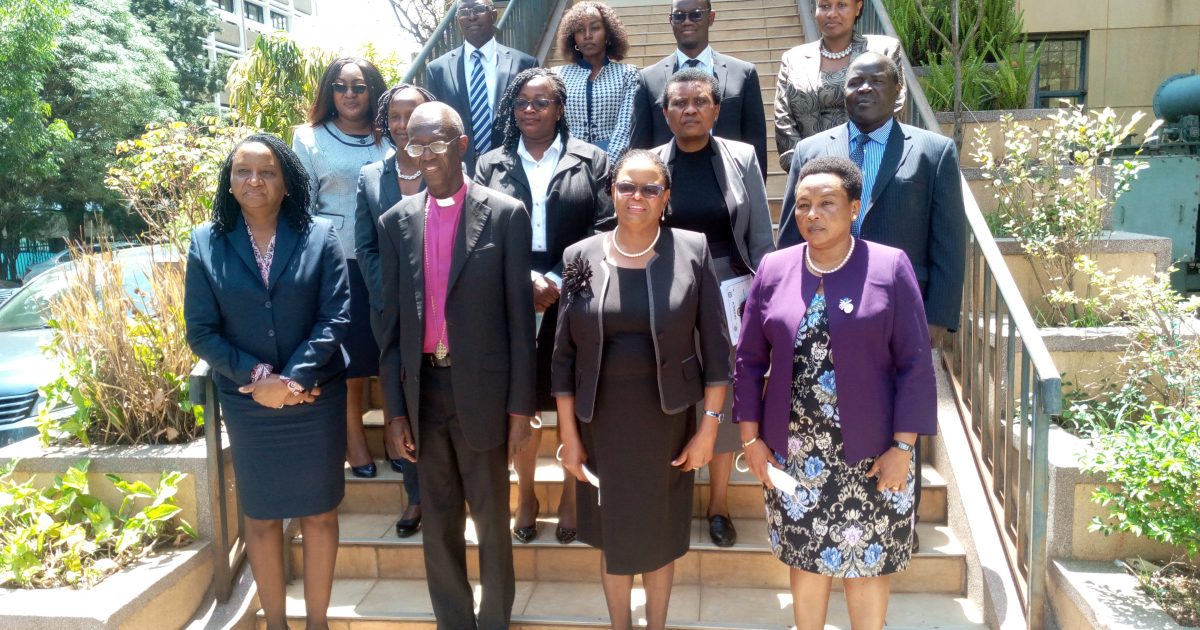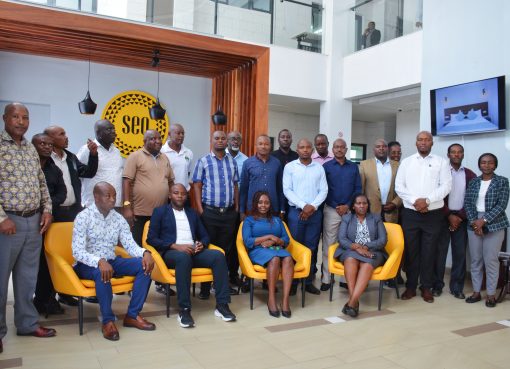Chief Justice (CJ) of Kenya Martha Koome in collaboration with the Ethics and Anti-Corruption Commission (EACC) Chairman Archbishop Rtd. Dr Eliud Wabukala today launched a systems review into the policies, procedures, and practices of the Judiciary.
The exercise was undertaken with a view to preventing corruption in the Judiciary by strengthening its administrative systems.
Speaking at the Milimani Law Courts in Nairobi, CJ Koome noted that the lingering perception in the country of the failure by the Judiciary to rid its systems and operations of corruption has lowered the public confidence and trust in the institution.
“It is in light of our quest to enhance public confidence and trust in the Judiciary that I extended an invitation to the EACC to undertake a comprehensive anti-corruption audit of the Judiciary,” she said.
According to the CJ, both institutions agreed that the target areas for review would include among others, the Registry and Records Management, Financial Management, Supply Chain Management, Human Resource, Information Communication and Technology (ICT), and Communication.
Koome alluded to her vision for the Judiciary of ‘Social Transformation through Access to Justice’ as the key foundation to enhance public trust and confidence by adopting a proactive strategy rather than a reactive one.
The CJ said that identifying the avenues and opportunities for unethical and corrupt practices and working towards eliminating them were the preventive measures the Judiciary would be undertaking.
“The avenues and opportunities for corruption are largely a function of distortion of laws, policies, practices, and processes to favour personal or private interests,” she maintained, adding that weak systems and processes created loopholes for corruption to thrive hence the need to seal them.
She discredited the isolated and sporadic acts focused on incidents of individuals caught in the act and instead encouraged proactive systemic audit of the Judiciary’s systems and operations to fight and win the war against corruption.
Further, she stressed on the need to adopt a root and branch systems review of the Judiciary’s entire operations to tackle and eliminate the avenues and loopholes that were prone to be exploited by those who could be tempted to engage in unethical and corrupt acts.
Koome said that the EACC would advise the Judiciary on designing, implementing, and strengthening the anti-corruption measures that it has put in place.
“We should note that the challenge of stamping out corruption in our institutions in the public and private sectors remains a formidable challenge,” the CJ said as she justified the necessity for collaborating with institutions which have the expertise to fight corruption like the EACC.
The CJ noted that the Judiciary, in partnership with Transparency International with the support of the Judicial Performance Improvement Project, commissioned a Survey on Corruption Mapping and Development of a Governance and Anti-Corruption Strategy for the Kenyan Judiciary.
“I have read the report and its resulting recommendations and direct that this report and strategy be revisited by the Judiciary Leadership Team to complement the efforts that the Judiciary is putting in place to fight corruption,” she affirmed.
In his remarks, Dr Wabukala said the rolling out of the exercise is a gesture of confidence in EACC by the Judiciary which also requested the Commission to enhance corruption preventive measures in the Judiciary through targeted education and public awareness programmes.
“To this end, we have constituted two teams to undertake separate reviews on Project Management and the other on Registry and Records Management,” he said, adding that the former would take approximately 25 days while the latter will take 43 working days to complete.
Dr. Wabukala affirmed that the officers tasked with undertaking the reviews have been fully briefed and he was confident that they have the competency and the capability to undertake the assignment.
The partnership between the Judiciary and the EACC is viewed as a symbolic commitment to enhance and redouble the Judiciary’s efforts to combat corruption and give effect to the normative command in Chapter Six (6) of the Constitution on Leadership and Integrity which is necessary given that prolonged systemic corruption undermines institutions and ultimately erodes the legitimacy of the state.
By Michael Omondi and Grace Buliba




